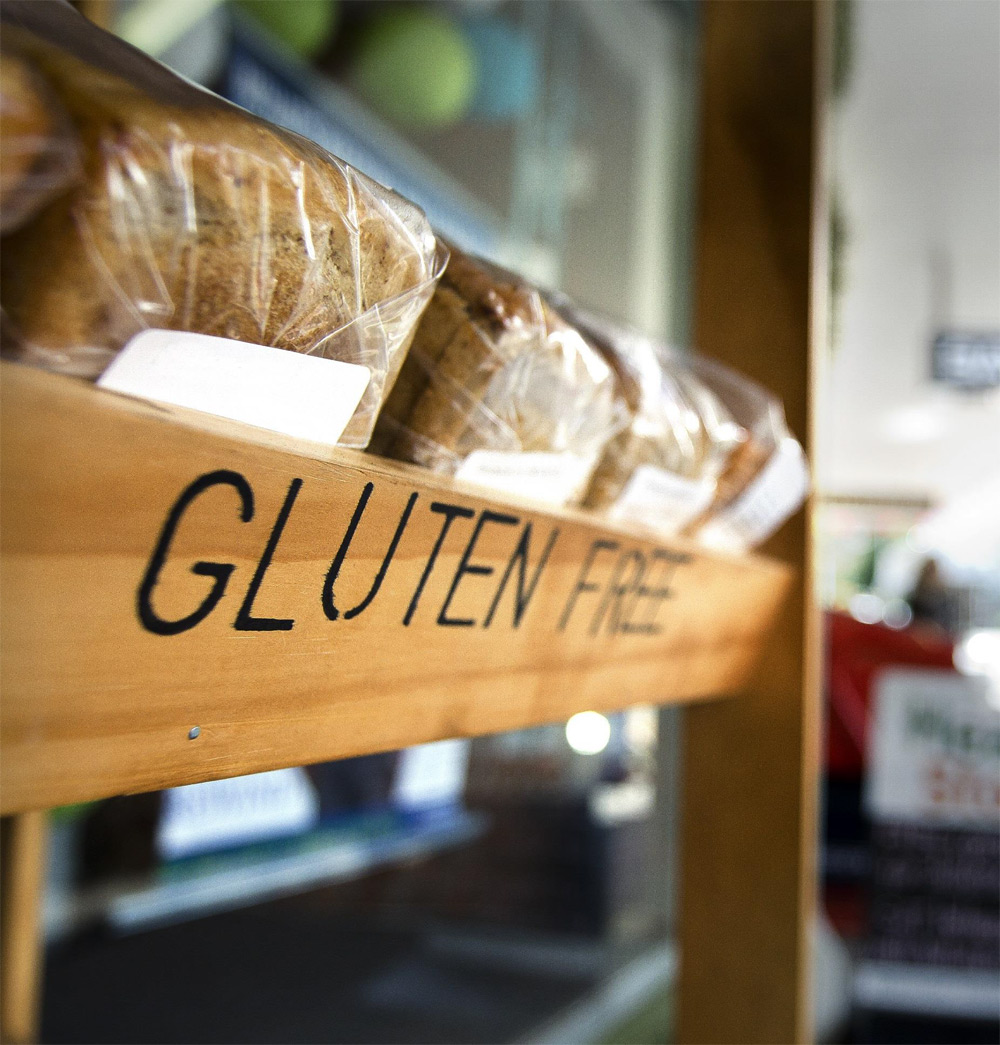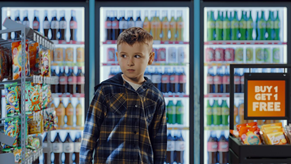Research reveals misperceptions of the health benefits of gluten-free foods

safefood research reveals almost 1 in 7 people consider a gluten-free diet a healthy way to lose weight; yet survey reveals 75% of gluten-free snack foods were high in fat and 69% high in sugar.
Wednesday 29 January, 2020. More than 1 in 6 people in Northern Ireland buy gluten-free foods despite 92% of those surveyed not being diagnosed with coeliac disease or a gluten-related disorder.
A new research report¹ launched today by safefood has revealed a number of misperceptions of the health benefits of gluten-free products with some people cutting gluten from their daily diet in an attempt to improve their health.
The findings revealed that more than 1 in 7 people across Northern Ireland considered a gluten-free diet a healthy way to lose weight, with 17% of people thinking that gluten-free products are lower in fat than foods that contain gluten and a further 17% thinking they contained less amounts of sugar.
The safefood research included an analysis of the nutritional content of 67 gluten-free snack foods, including nut products and savoury snacks, cereal and baked products, and confectionery. The results found that 75% of all gluten-free snack products were high in fat and 69% were high in sugar, with calorie levels similar to a standard chocolate bar.
Introducing the research, Joana Da Silva, Dietitian with safefood said, “For those people who have a diagnosis of coeliac disease or those with a gluten-related disorder, avoiding gluten in their daily diet is an absolute must.”
However, there is no consistent evidence that a gluten-free diet will improve your health if you aren’t sensitive to gluten. Yet, we know from our survey that over 90% of people buying these products do not have a gluten-related disorder or have not been diagnosed with coeliac disease and therefore have no medical reason to avoid gluten in their diet.
“We are concerned that a majority of gluten-free snack products have an unhealthy nutritional profile for everyone, whether or not they have a gluten-related disorder. Many of the gluten-free snacks we surveyed are high in fat and sugar like other treat foods. Snacking on foods such as fruit and vegetables, unsalted plain nuts and gluten-free rice cakes and cheese, are healthier options for us all,”
According to industry estimates², the gluten-free food market in the UK was worth £438 million in 2016, an increase of 36% on the previous year. Many gluten-free food products are promoted by media personalities and sports stars as part of a trend for ‘clean label’, including ‘free-from’, food products.
Ms Da Silva added: “Similar to recent trends we’ve seen with high-protein foods, gluten-free food is big business. In the case of gluten-free snacks, you could end up purchasing snack foods with lots of added fat and sugar which are of no added benefit to your health.”
The report “Cutting out Gluten – the nutrient profile of gluten-free snack foods on the island of Ireland” is available to download at www.safefood.eu
- Ends -
For further information or to request an interview, please contact
Russell Lever / Vicki Caddy
ASG & Partners
Tel: 028 9080 2000
Mob: 077 8828 8901 (Russell Lever) / 078 1438 0487 (Vicki Caddy)
Email: [email protected] / [email protected]
Or
Dermot Moriarty
safefood
Tel: 00353 1 448 0600
Mob: 00353 86 381 1034
References
¹ “Cuttting out Gluten – the nutrient profile of gluten-free snack foods on the island of Ireland” safefood January 2020
² “Free from Market: UK Market” [press release] 2016
Editor's notes
- The safefood research surveyed 67 gluten-free snack foods available for sale on the island of Ireland in October 2018 in major supermarkets. Nutritional research was based on the products’ own label information.
- A survey of 2,000 people on the island of Ireland was conducted in 2019 by Ipsos MRBI. In Northern Ireland, this was done through a face-to-face omnibus was carried out in Northern Ireland while a telephone omnibus service was carried out in the Republic of Ireland.




